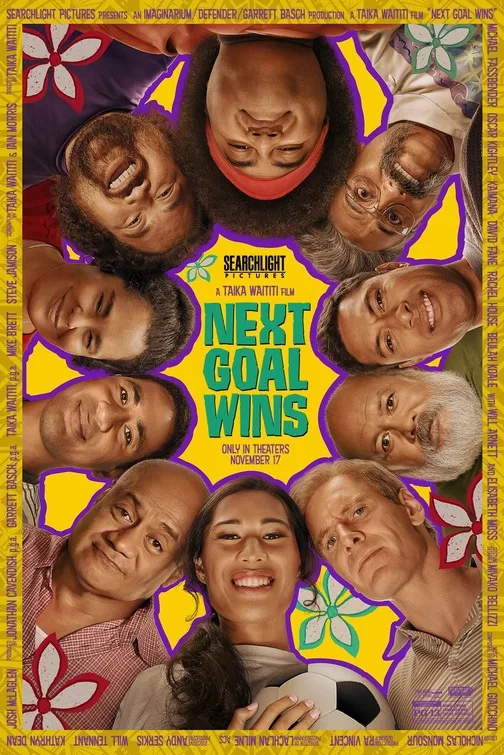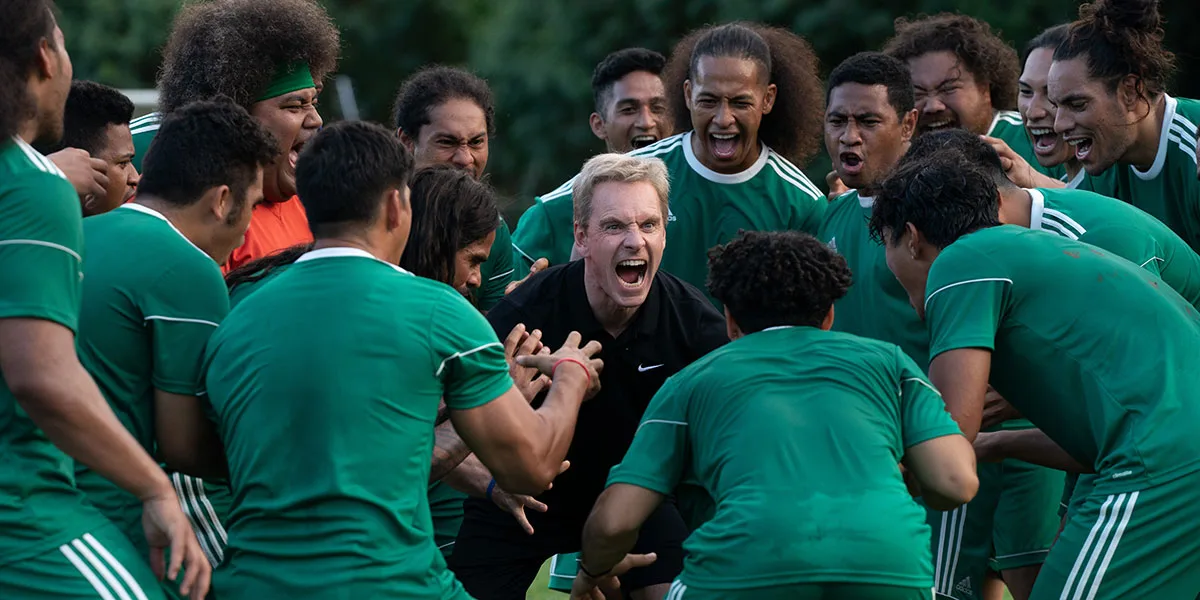Next Goal Wins
Jodie Foster Teaches Filmmaking
Content Advisory: Transphobia

A down-on-his-luck soccer manager is hired to coach the American Samoa national team in Next Goal Wins. Thomas Rongen (Michael Fassbender) is a temperamental Dutch-American soccer coach who is sent by American Soccer Federation head Alex Magnussen (Will Arnett) to coach the American Somoa National Team, a move recommended by Thomas’ ex-wife Gail (Elisabeth Moss). The American Samoa National Team has never won a game and is still reeling from an embarrassing 31-0 loss to Australia in the 2002 World Cup Qualifiers. Guided by Tavita (Oscar Kightley), the Head of the Football Federation of American Samoa, and learning to get along with the team’s fa’afafine player Jaiyah (Kaimana), Thomas is given the last to lead the team to just one goal.
Next Goal Wins Synopsis
Next Goal Wins is an inspirational sports comedy co-written and directed by Taika Waititi (Jojo Rabbit, Hunt for the Wilderpeople), based on the true events that have been previously portrayed in the 2014 documentary of the same name. The film stars Michael Fassbender as coach Thomas Rongen, whose high-tempered behaviour gets him fired in America and he is forced to locate to American Samoa to try and make something of their National Soccer Team.

Thomas is greeted by Tavita, who is not only the Head of the Football Federation but also has many odd jobs around the island. Tavita is married to Ruth (Rachel House) and their son Daru (Beulah Koale) is a player on the team. Another member of the team is Jaiyah, who is part of American Samoa’s gender-fluid Fa’afafine culture, which initially results in conflict with Thomas, but Jaiyah soon turns out to be a key member of the squad.
My Thoughts on Next Goal Wins
It has been nearly a decade since Taika Waititi entered the mainstream with 2014’s What We Do in the Shadows, which he co-directed with Jemaine Clement. Since then, Waititi has alternated between smaller films, such as 2016’s Hunter for the Wilderpeople and 2019’s Jojo Rabbit, and the big budget MCU films, 2017’s Thor: Ragnarok and 2022’s Thor: Love and Thunder. However, the question has to be asked whether Taika Waititi was best suited to direct a narrative version of events already depicted in an excellent and inspirational documentary.
Presumably, Taika Waititi got the director’s job for Next Goal Wins due to his New Zealand Mauri heritage, hence sharing Polynesian ancestry with American Samoa. However, the very first image of the film is Waititi sporting a handlebar mustache as an American Samoan Priest, who also serves as an introductory narrator for the film. This ends up affecting the film tonally, as Next Goal Wins begins on an incredibly goofy note, which it never fully recovers from.
One of the key relationships of the film is the dynamic between Thomas Rongen and Fa’afafine striker Jaiyah, who historically has the distinction of being the first transgender athlete to play in the World Cup Qualifier. However, her relationship with Thomas in the film begins as incredibly confrontational and transphobic, with Thomas even deadnaming Jaiyah at one point. Since Fa’afafine culture is something that is accepted in American Samoa, Thomas’ transphobia towards Jaiyah has no real point, other than to create conflict for the film.
Since the story of Next Goal Wins has already been told in a documentary, with the exact same title for that matter, it is no real surprise how the story turns out. As such, Taika Waititi makes the narrative decision to depict most of the climatic game in flashback, with Daru narrating what happened to his parents. This comes across as a bit anticlimactic, as the scene is more about Tavita’s reactions than the game itself. Ultimately, while Next Goal Wins is a fine enough dramatization of the events, I recommend you instead watch the original documentary.


